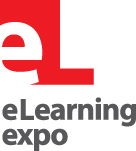23 février 2013
EU stepping up support for education and skills
 Statement by Androulla Vassiliou, European Commissioner for Education, Culture, Multilingualism and Youth, during the policy debate on 'Education and Skills for Jobs, Stability and Growth', at the Education Council.
Statement by Androulla Vassiliou, European Commissioner for Education, Culture, Multilingualism and Youth, during the policy debate on 'Education and Skills for Jobs, Stability and Growth', at the Education Council."We have to offer more direct and immediate support to the people who need help now.
We have to work harder to improve people's skills and competences so that they have a better chance to find a good job – this is exactly the policy message that we are giving in our 'Rethinking Education' Communication.
This year is decisive when it comes to the Member States' plans for how to spend the next generation of Structural Funds. In the current programming period Member States are spending € 35 billion from the Structural Funds on education, training and lifelong learning. As you know, the bulk of the funding comes from the European Social Fund (€ 28 billion), but more than € 7 billion will be spent on education infrastructure through the European Regional Development Fund. These amounts can make a difference, if they are used effectively and for the right purposes.
The legislative framework for the period 2014 – 2020, which will soon be agreed among the EU Institutions, gives a prominent role to investment in education and training. It is now up to you, Ministers of Education, to ensure that your plans for the modernisation of education benefit from adequate funding."
U-Multirank
"I cannot finish without mentioning in your presence, President, the work we are doing to bring to fruition the U-Multirank project, the multi-dimensional and global ranking initiative supported at EU level.
This is actually our plan to complement the existing university rankings, which are almost exclusively based on universities' research functions, with a tool which will provide a better, more rounded picture of the performance of our universities and colleges.
The launch conference in Dublin two weeks ago was a great success and I want to thank you, President, for you strong personal commitment. I want to invite all of you, dear ministers, to join Minister Quinn in becoming advocates for this project with your higher education institutions.
U-Multirank has the potential to increase transparency, and to highlight excellence in all the different missions of our universities, in teaching and learning, in knowledge transfer and regional development and in internationalisation, as well as in research. This will increase the visibility and attractiveness of all our universities, not just the big league universities. It will also be based on a strong input from the different national actors."






/https%3A%2F%2Fprofilepics.canalblog.com%2Fprofilepics%2F1%2F0%2F1076071.jpg)